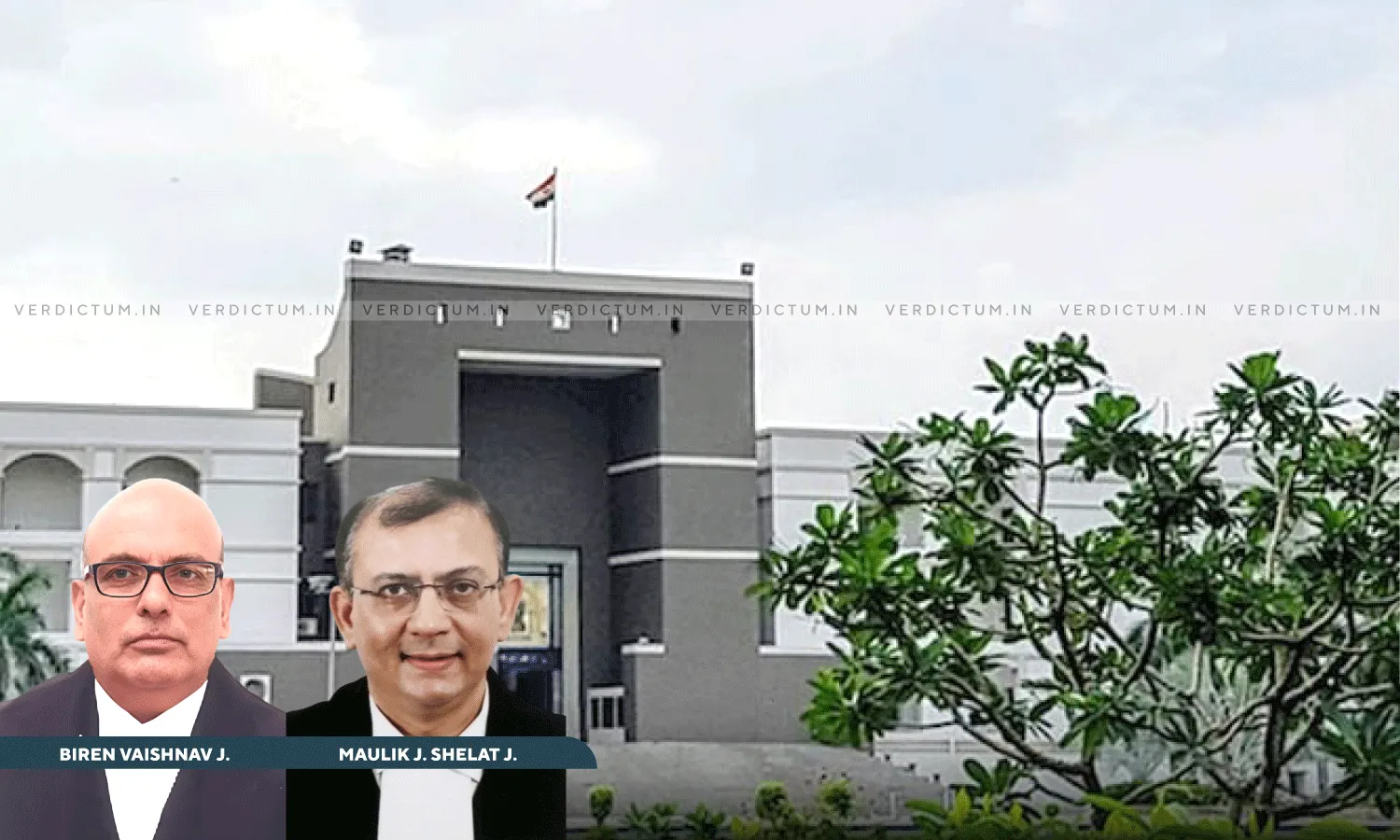Family Court Must Be Sensitive Towards Issues; Its Approach Is More Of A Conciliator First & Then Adjudicator: Gujarat HC
The Gujarat High Court remarked that the Family Court must be sensitive towards the issues of marriage, child custody, maintenance and that its approach is more of a Conciliator first, then an Adjudicator.
The Court was deciding an Appeal filed by a woman against the Judgment and Decree of the Family Court by which her Suit for seeking divorce was dismissed.
A Division Bench comprising Justice Biren Vaishnav and Justice Maulik J. Shelat emphasised, “It is the duty of the Family Court to get rid of normal rule of procedure set out for civil litigation rather its approach is more of a conciliator first then adjudicator. … The Family Court must be sensitive towards issue of marriage, child custody and maintenance and requires different approach while dealing with family issues, which touches life of the parties.”
The Bench said that the family dispute of any kind, which is brought before the Family Court, would not be considered as an adversarial litigation like any other civil or commercial dispute and that the Family Court has to deal with it in a more sensitive and humane manner.
Advocates M.R. Prajapati and Alka A. Prajapati represented the Appellant while Advocate A.M. Parekh represented the Respondent.
Factual Background -
The Appellant was the wife (Plaintiff) whereas the Respondent was the husband (Defendant) in this case. Their marriage was solemnised in 2009 and out of the said wedlock, they were blessed with a boy in 2012. As per the wife’s case, differences arose between the couple which seriously affected the matrimonial life. It was stated that the husband had a habit of betting on cricket matches, thereby creating a huge debt. According to her, he was not taking care of her and her son and instead was asking for money from her to get rid of his debt. She alleged that, eventually, the husband and his family members started inflicting cruelty upon her, which ultimately led to her decision to leave her matrimonial home in 2013.
Since then, the couple was residing separately and thereafter never cohabited. Pursuantly, a mutual deed of divorce was executed between the couple. The wife filed a Family Suit seeking divorce under Section 13 of the Hindu Marriage Act, 1955 (HMA) and the same got amended by filing an Application. As the husband failed to appear, it resulted in ex-parte proceedings. The Family Court arrived at a finding that the Plaintiff (wife) has failed to prove any of the issues except one in her favour and thereby, dismissed the Suit. Hence, she filed an Appeal before the High Court.
The High Court in the above context of the case, observed, “The Family Court must keep in mind the Object and Reasons whereby the Family Court Act, 1984 was brought by the Parliament.”
The Court laid down the following principles for the Family Court while adjudicating the issues –
• It always must be an endeavour to achieve the object of the Act, 1984 rather frustrate it by unnecessary creating lengthy procedure like civil trial. Albeit, the evidence, which is prohibited in law, should not form basis of final opinion.
• The Family Court must be sensitive towards issue of marriage, child custody and maintenance and requires different approach while dealing with family issues, which touches life of the parties. It must always try to avoid mechanical, myopic and hyper technical approach towards the issue germane in the suit and always act for betterment and welfare of victim of family dispute to sub-serve the object of Act, 1984.
• The burden of proof lies on the shoulder of the plaintiff, who is seeking divorce, but such a degree of proof is not beyond a reasonable doubt but should be judged on the principle of preponderance of probability.
• It should be kept in mind that what is cruelty for a woman in a given case may not be cruelty for a man, and a relatively more elastic and broad approach is required when a Family Court examines a case in which a wife seeks divorce.
• When in a given case, the Family Court is granting decree of divorce then it should consider the issue of permanent alimony of spouse who is considered weak/poor not in a position to maintain herself/himself and pass appropriate order of permanent alimony in favour of such a party and also, where there is/are child/children out of such a wedlock, the alimony has to be worked out accordingly.
The Court, therefore, dissolved the marriage between the parties on the ground of cruelty and desertion under Section 13 of HMA.
Accordingly, the High Court allowed the Appeal and quashed the impugned Judgment.
Cause Title- ABC v. XYZ (Neutral Citation: 2024:GUJHC:64562-DB)




